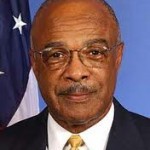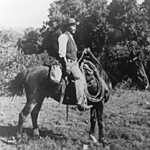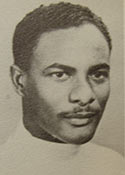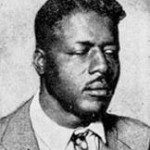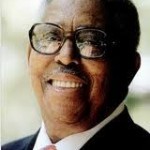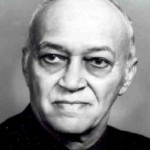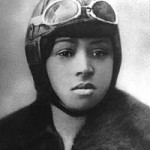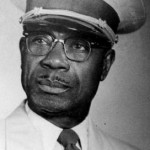He Fought for His Freedom in the Revolution
Then His Sons Were Sold Into Slavery
Jude Hall was one of the most revered black veterans of the American Revolution. That didn’t stop the kidnappers from targeting his boys.
(History.com) Born into slavery before the American Revolution, Jude Hall fought valiantly in several of the war’s most crucial battles, earning the nickname “Old Rock” for his strength and heroism.
Yet while he would gain his freedom after the war, and a small plot of land in Exeter, New Hampshire on which to raise his family, Hall couldn’t shield his children from the many perils that befell people of color in early America—from the ever-present burden of poverty to the terrifying possibility that they might be abducted and sold into slavery. Kidnapping free blacks to transport south was a lucrative business, as southern plantation owners were hungry for laborers. And African Americans rarely had documentary proof of their status, much less legal standing to question the word of a white man in court. Children and teens made especially attractive targets.
Three of Hall’s sons would be kidnapped and shipped south, never to return home. (more)
Power News Radio Network announces 2018 Black College Football All-American Team — two players from PVAMU named
 (PNRN) The Power News Radio Network (PNRN) has announced its 2018 Black College Football All-American Team. The Mid-Eastern Athletic Conference (MEAC) and Southwestern Athletic Conference (SWAC) placed nine and six players on the team respectively. The Central Intercollegiate Athletic Association (CIAA) had five players selected, while three were selected from the Southern Intercollegiate Athletic Conference (SIAC). The Ohio Valley Conference (OVC) was represented by two players.
(PNRN) The Power News Radio Network (PNRN) has announced its 2018 Black College Football All-American Team. The Mid-Eastern Athletic Conference (MEAC) and Southwestern Athletic Conference (SWAC) placed nine and six players on the team respectively. The Central Intercollegiate Athletic Association (CIAA) had five players selected, while three were selected from the Southern Intercollegiate Athletic Conference (SIAC). The Ohio Valley Conference (OVC) was represented by two players.
Two players from PVAMU were named to the team: Zarrian Holcombe, a junior TE from Houston, and junior defensive back Ju’Anthony Parker from Dallas.
The North Carolina A&T State Aggies had five players on the team and picked up three honors. They’re recognized as “2018 Black College Football National Champions,” head coach, Sam Washington was named “2018 Coach of the Year” and defensive lineman Darryl Johnson Jr. was chosen as the “2018 Defensive Player of the Year.” Bowie State University Quarterback Amir Hall captured the “2018 Offensive Player of the Year” honor for a second consecutive year. (more)
Texas Voices: The Black Gospel Music Restoration Project
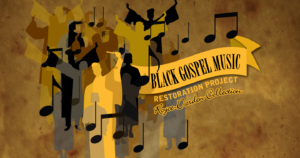 (kxxv.com) Gospel was the soundtrack of the Civil Rights Movement. “The Scorpions” played the same notes at the fall of the Berlin Wall and now Black Lives Matter and the Women’s movement have claimed the sound for themselves.
(kxxv.com) Gospel was the soundtrack of the Civil Rights Movement. “The Scorpions” played the same notes at the fall of the Berlin Wall and now Black Lives Matter and the Women’s movement have claimed the sound for themselves.
“This music is in the DNA of people who are trying to fight for justice and civil rights. It needs to be preserved,” said Dr. Robert Darden, a journalism professor at Baylor University.
Professor Darden’s deep appreciation for the music changed the world’s access to it forever.
“Every day I feel this sense of urgency that the clock’s ticking on the music that told the story of a population that didn’t have anybody else to tell that story for 40 years,” said Prof. Darden.
Gospel has always been an oral tradition, he says. The great voices study at the feet of the person who came before but what has been recorded mostly within the walls of churches across the country is scattered and degrading in church basements, attics and private collections. He was compelled to act.
“I would write about a song that changed America or was influential in the civil rights movement, I couldn’t hear it. So, I wrote an editorial that I sent to the New York Times. If we let this music disappear, future generations are going to deal with us really harshly,” said Prof. Darden.
As if the Lord had already prepared a way, a donor read the article and came forward with a promise to fund the project if Darden could save the music.
“And that was the beginning of The Black Gospel Restoration Project,” said Prof. Darden.
A digital lab was built in the Crouch Fine Arts Library on Baylor’s Campus. More donors came forward to secure a sanctuary of sorts with the world’s best speakers from Germany and Europe and digitization equipment to systematically restore and preserve the music, song by song.
A lot of the items the lab receives are in pretty bad shape. The lab receives items, will pay for the shipping, cleans it, digitizes it and then sends the original back to its owner.
If there is a hung groove or a groove skips, the lab’s engineers can fix it on the turntable during transfer.
Every day is Sunday in the lab. (more, plus video)
TIPHC Bookshelf
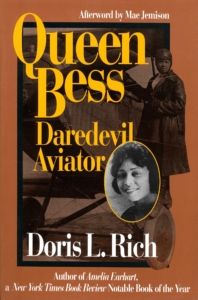 Published scholarship on black history in Texas is growing and we’d like to share with you some suggested readings, both current and past, from some of the preeminent history scholars in Texas and beyond. We invite you to take a look at our bookshelf page – including a featured selection – and check back as the list grows. A different selection will be featured each week. We welcome suggestions and reviews. This week, we offer, “Queen Bess, Daredevil Aviator,” by Doris L. Rich.
Published scholarship on black history in Texas is growing and we’d like to share with you some suggested readings, both current and past, from some of the preeminent history scholars in Texas and beyond. We invite you to take a look at our bookshelf page – including a featured selection – and check back as the list grows. A different selection will be featured each week. We welcome suggestions and reviews. This week, we offer, “Queen Bess, Daredevil Aviator,” by Doris L. Rich.
Here is the brief but intense life of Bessie Coleman, America’s first African American woman aviator. Born in 1892 in Atlanta, Texas, she became known as “Queen Bess,” a barnstormer and flying-circus performer who defied the strictures of race, sex, and society in pursuit of a dream.
This Week in Texas Black History
Jan. 20
 On this day in 1889 musician Huddie “Lead Belly” Ledbetter was born in Mooringsport, Louisiana (near Shreveport). Known as the “King of the 12-String Guitar,” he wrote children’s songs, field songs, ballads, square dance songs, prison songs, folk songs, and blues. He was five when his family settled in Bowie County. He picked up the nickname either as a play on his last name or as the result of being shot in the stomach with buckshot. Lead Belly’s song catalog consisted of well over 500 songs, including “Midnight Special,” “Kisses Sweeter than Wine,” and “Rock Island Line.” In 1950, The Weavers, a folk quartet, recorded a version of Lead Belly’s “Good Night, Irene” that spent 25 weeks on the Billboard charts, peaking at No. 1.
On this day in 1889 musician Huddie “Lead Belly” Ledbetter was born in Mooringsport, Louisiana (near Shreveport). Known as the “King of the 12-String Guitar,” he wrote children’s songs, field songs, ballads, square dance songs, prison songs, folk songs, and blues. He was five when his family settled in Bowie County. He picked up the nickname either as a play on his last name or as the result of being shot in the stomach with buckshot. Lead Belly’s song catalog consisted of well over 500 songs, including “Midnight Special,” “Kisses Sweeter than Wine,” and “Rock Island Line.” In 1950, The Weavers, a folk quartet, recorded a version of Lead Belly’s “Good Night, Irene” that spent 25 weeks on the Billboard charts, peaking at No. 1.
Jan. 20
Rod Paige was confirmed as the U.S. Secretary of Education on this date 2001, making Paige the first African-American secretary of education. Though from Monticello, Mississippi, Paige served for a decade as Dean of the College of Education at Houston’s Texas Southern University, after serving as the school’s athletic director. He also had a stint as the Tigers head football coach. From 1994-2001, he served as superintendent of the Houston Independent School District.
Jan. 21
On this day in 1922, George McJunkin died in Folsom, New Mexico. Born a slave in Midway, Texas, McJunkin is credited with one of the most significant finds in archeological history, “Folsom Man.” A cowboy and amateur archeologist, McJunkin was inspecting damage on the Crowfoot Ranch, where he was foreman, after a 1908 flood when he discovered bison bones. He realized the find was significant but no experts would look at his discovery until after his death in 1922. The remains were part of a Paleo-Indian site dating back as far as 9000 BCE, where ancient bison had been killed by early Indians using special tools, now referred to as Folsom points. With this find, scientists were able to establish a human presence in North America about 7,000 years earlier than had previously been thought. The site eventually yielded human remains that became known as “Folsom Man.”
Jan. 21
On this date in 2007, Lovie Smith of Big Sandy, Texas became the first African-American professional head football coach to qualify a team for the NFL’s Super Bowl. Smith’s Chicago Bears beat the New Orleans Saints, 39-14, in the NFC championship game. Smith led the Big Sandy Wildcats to three consecutive state championships in high school and was all-state three times as an end and linebacker.
Jan. 22
On this day in 1926, Dr. Herman A. Barnett, III was born in Austin. In 1950, he became the first black student at the University of Texas Medical Branch in Galveston. In the previous year, Barnett had been accepted to the school but as a student in Houston at Texas State University for Negroes (Texas Southern University) attending UTMB under a contract program between the schools. The program was stopped after the Veterans Administration(Barnett’s tuition was covered by the GI Bill) refused to recognize the contract system and Barnett’s attorney threatened legal action. Barnett became a prominent surgeon and anesthesiologist and was a graduate of Huston College in Austin. During WWII, he was a Tuskegee Airman (332nd Fighter Group) and in 1968 became the first African-American to serve on the Texas State Board of Medical Examiners. In 1973, Barnett was the first black elected president of the Board of Trustees of the Houston Independent School District.
Jan. 22
Blues and gospel singer Blind Willie Johnson was born on this day in 1897 in Independence, Texas. While Jan. 22 is the date noted on his death certificate, other accounts list his birth on December 6, 1902 near Temple, Texas. Johnson recorded 30 songs, including his most popular, “Dark Was the Night – Cold Was the Ground,” a song about the crucifixion of Jesus.
Jan. 23
John Saunders Chase, Jr. was born on this day in 1925 in Annapolis, Md. On June 7, 1950, when Chase enrolled at the University of Texas, the school became the first major university in the South to enroll an African-American. Chase earned a Master of Architecture degree in 1952 and became the first African-American graduate of the university. That same year, Chase became the first licensed African-American architect in Texas and was the only black architect licensed in the state for almost a decade.
Jan. 24
On this date in 1975, J. Mason Brewer died. Brewer, considered the premier African-American folklorist of the twentieth century, was born in Goliad in 1896 and became the first author and speaker to use black American dialect extensively in front of and to all audiences, particularly when dealing with folklore. He was the first black member of both the Texas Folklore Society and the Texas Institute of Letters. His most noted works include “Aunt Dicy Tales,” and an anthology, “American Negro Folklore,” for which he won the Chicago Book Fair Award in 1968.
Jan. 25
On this day in 1915, Independence Heights became the first incorporated black city in Texas. Located northeast of Houston, it had a population of 600 and G.O. Burgess was its mayor. The area was annexed to Houston on December 26, 1929.
Jan. 26
Bessie Coleman was born on this date in 1892 in Atlanta, Texas. Thwarted by racism in her quest to become a pilot, Coleman eventually went to France to train and in 1921 became the first licensed black pilot in the world. As a stunt pilot, she became known as “Queen Bess” and “Brave Bessie” in 1995 the U.S. Postal Service issued a stamp in Bessie’s honor and in 2000 was inducted into the Texas Aviation Hall of Fame. The main road to Atlanta’s airport is named Bessie Coleman Drive.
Jan. 26
On this date in 1980, former L.C. Anderson High School band leader B.L. Joyce died in San Jose, California. Joyce was born in the late 1800s in Plaquemine, La. He attended Samuel Huston College in Austin before becoming band director at Anderson High School, from 1934 to 1955. Under his leadership, the band won the state championship seven times between 1940 and 1953 at the Prairie View Interscholastic Leaguecompetitions. Among his many star pupils was noted jazz trumpeter Kenny Dorham.
Jan. 26
On this date in 1970, contemporary gospel musician and producer Kirk Franklin was born in Fort Worth. A multi – Grammy Award winner, Franklin learned to play piano as an infant and by age 11 was leading the Mt. Rose Baptist Church adult choir in Dallas. His first album, 1993’s “Kirk Franklin & the Family,” spent 100 weeks on the gospel charts (several times as No. 1), crossed over to the R&B charts, and became the first gospel debut album to go platinum.
Blog: Ron Goodwin, Ph.D., author, PVAMU history professor
Ron Goodwin is an assistant professor of history at Prairie View A&M University. Even though he was a military “brat,” he still considers San Antonio home. Like his father and brother, Ron joined the U.S. Air Force and while enlisted received his undergraduate degree from Texas Lutheran University in Seguin, Texas. After his honorable discharge, he completed graduate degrees from Texas Southern University. Goodwin’s book, Blacks in Houston, is a pictorial history of Houston’s black community. His most recent book, Remembering the Days of Sorrow, examines the institution of slavery in Texas from the perspective of the New Deal’s Slave Narratives.
Recent Posts
Uncommon integrity
I, (NAME), do solemnly swear (or affirm) that I will support and defend the Constitution of the United States against all enemies, foreign and domestic; that I will bear true faith and allegiance to the same; and that I will obey the orders of the President of the United States and the orders of the…(more)
Democratic hypocrisy
Democracy (noun) – The belief in freedom and equality between people, or a system of government based on this belief, in which power is either held by elected representatives or directly by the people themselves. — Cambridge Dictionary Over a hundred years ago W.E.B. Dubois asked if one could be black and an American. He saw this “twoness” as perhaps the central issue affecting all Africans in America. Personally, I also feel a unique identity crisis…(more)
Submissions wanted
Historians, scholars, students, lend us your…writings. Help us produce the most comprehensive documentation ever undertaken for the African American experience in Texas. We encourage you to contribute items about people, places, events, issues, politics/legislation, sports, entertainment, religion, etc., as general entries or essays. Our documentation is wide-ranging and diverse, and you may research and write about the subject of your interest or, to start, please consult our list of suggested biographical entries and see submission guidelines. However, all topics must be approved by TIPHC editors before beginning your research/writing.
We welcome your questions or comments. Please contact Michael Hurd, Director of TIPHC, at mdhurd@pvamu.edu.

